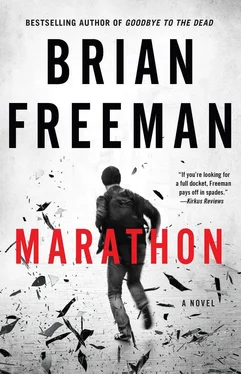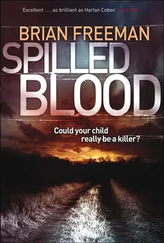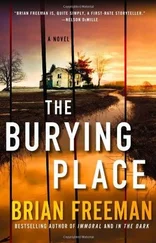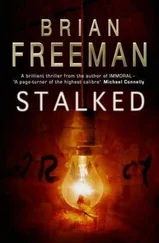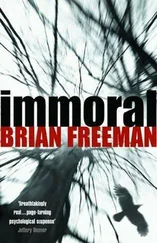For an old city, Duluth was young. Thousands of college students filled the breweries and coffee shops and kayaked on the lakeshore, and they’d made the city strangely hip. A town that had been carved out of the winter wilderness by the raw, hard labor of mining and shipping was now the artsy, outdoorsy hub of Minnesota.
Gayle had only been back to Duluth once since Ron died. His ghost was everywhere, which made the city oppressive to her. Her parents had learned that if they wanted to see their daughter, they had to drive two and a half hours to Minneapolis, but even those visits were rare and awkward. She worked twelve-hour days six days a week, and she didn’t like taking time off — her job was her life. Her sterile apartment in Brooklyn Center, not even a mile from the FBI headquarters building, wasn’t made for overnight guests, so her parents stayed at the Super 8 when they came to town.
After spending eighteen years in Duluth, she’d joked to Ron that she wanted to go somewhere warmer for college — so she went to the University of Minnesota in the Twin Cities. She double-majored in psychology and sociology and then stayed for a psych master’s degree. She got a job with Hennepin County conducting applicant interviews for sensitive positions dealing with the public. Her specialty was reading faces and body language, and she was so good at sniffing out people who were misrepresenting their backgrounds that her colleagues began calling her the Lie Detector.
She’d worked at the county for three years and then passed the test and training to join the FBI. At that point, she was twenty-seven years old. Now she was thirty-three.
To survive in the FBI boys club, she had to be twice as tough as the men, physically and mentally. Her life was simple. She worked long days; she exercised at the gym during the evening. She slept six hours each night. She’d never had a serious romantic attachment, and she didn’t want or need one. She was confident that she was generally the smartest person in the room, and it was usually true.
Gayle was five-foot-nine and full-figured, but her extra weight was muscle, not fat. She kept her brown hair in a short, practical cut with slightly messy spikes across her forehead. She had brown eyes, a rounded nose, and a V-shaped chin. She wore women’s suits from Penney’s. Nothing expensive. Nothing fancy. Whenever she was outside, she hid her eyes behind sunglasses, so she could watch the world unseen.
Nobody at the Bureau really liked her, but they respected her. She was frustrated, though, because she’d been trapped in the penalty box — behind a desk — for more than a year. It was her own fault. Ten months after Ron died in Paris, she’d interviewed a teenage Somali immigrant in St. Cloud about his online contacts with Islamist radicals. The kid had lied to her. It was all over his face. Her job was simply to pass her notes up the food chain, but Gayle kept seeing Ron’s face with every lie. She imagined this kid walking into a crowded space, somewhere like the Mall of America at Christmastime, and blowing up everyone around him. She lost it. She threw the kid into a wall and fractured his shoulder. The case against him fell apart, and the Bureau settled a lawsuit brought by his family.
Gayle kept her job, but since then, she’d been a paper pusher, analyzing videos of interviews conducted by other agents and writing reports. She hated it, but the only way to get back into the field was to take your punishment without complaint. Despite what she’d done, nobody blamed her. If anything, she’d won some fans among agents who felt the way she did, even if they couldn’t say so out loud.
Her phone rang in her cubicle. Gayle tensed.
She’d been waiting for the phone to ring since the first report of the marathon bombing had come in. Patrick Maloney was calling. He was the Special Agent in Charge of the Minneapolis office, and he’d only be calling her for one reason. He was going to bring her in from the cold. It was a disaster, it was Duluth, and they needed her.
“Agent Durkin, I’d like to see you,” he said.
“I’ll be right there, sir,” she told him.
Gayle practically ran to the elevator. The small wait to get to the top floor made her impatient. She smoothed the lines of her suit as she made her way to the corner office, and she used a pocket mirror to make sure she had no remnants of her lunch salad stuck in her teeth. When she reached Maloney’s office, the door was open, and she could hear him inside, on the phone. The secretary told her to wait, and she sat in a cushioned armchair with her knees squeezed together.
She heard snippets of the conversation and realized that Maloney was talking to the president. That was when the import of what was going on really dawned on her.
Fifteen minutes later, Maloney appeared in the doorway and motioned her inside.
She liked him. Everyone in the office did. He was from the old school. Despite being the top man in a cocky organization, he projected an aura of calm, organized efficiency, with no ego at stake. He was sixty years old, extremely tall and thin, but there was nothing fragile about him. Gayle suspected that Maloney could have easily outpaced her in a marathon. His gray hair never varied in length, because he had it trimmed every week. She’d never seen a single hair of his mustache or eyebrows longer than any other. His suits were dark and perfectly pressed.
Maloney was a workaholic like her, but unlike her, he’d managed to maintain a family life. He’d been married for thirty-five years. He had four children and six grandchildren. He was soft-spoken and not given to shows of enthusiasm or emotion, because emotion didn’t solve crimes. He simply got the job done, and he declined to play political games.
That tendency hadn’t served him well in the agency’s bureaucracy. Maloney had begun his career in Baltimore and then D.C., and for years, he’d been on the fast track. Agency watchers had buzzed about him as a future director. However, he’d made the mistake of not toeing the administration line on a domestic terrorism case in the 1990s. Maloney chose facts over politics, and not long after that, he’d been transferred out of Washington to lead the Minneapolis office. It was a promotion in name but not in fact. They were exiling him to the wilderness.
Maloney had accepted the new reality with grace, and he’d built one of the top field offices in the country out of his heartland beat. He had no chance of heading back to D.C., but he never expressed disappointment at the direction his career had taken.
Gayle sat down in front of Maloney’s desk. His eyes were direct. She was accustomed to reading people’s faces, but in this case, her boss was taking the measure of hers.
“You know what’s going on,” Maloney said with almost no inflection. If he’d read bedtime stories to his kids in that tone, they’d have fallen asleep in no time.
“Of course, sir.”
“We’ll be taking over the investigation,” he went on.
“Yes, sir.”
“There’s considerable interest in this case at the highest levels in Washington.”
Maloney’s voice never betrayed how he felt, but Gayle knew that “considerable interest” was probably an understatement. The betting in the field office was that the president would be weighing in on Twitter about the bombing before midnight, and he wasn’t likely to be nuanced in assigning blame.
“I’m sure that’s true,” Gayle said.
The field director assessed his agent for a moment in silence.
“You grew up in Duluth — is that right, Durkin?” Maloney asked, even though she was sure he could have recited her entire biography from memory.
“I did, sir. My parents still live there.”
“This is a painful day for your hometown.”
Читать дальше
